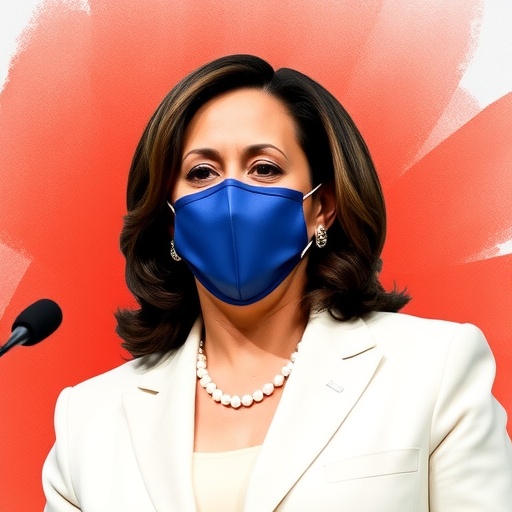Kamala Harris Hints at 2028 Presidential Run: Reviving Democratic Hopes Against Trump
In a stunning turn that has sent ripples through the political world, former Vice President Kamala Harris has subtly signaled her interest in a 2028 presidential bid, just months after her narrow defeat in the 2024 election. Speaking at a recent Democratic fundraiser in California, Harris declared, “The fight for America’s soul isn’t over—it’s just beginning,” a phrase that insiders interpret as a clear nod to her future ambitions. This hint comes amid growing unrest within the Democratic Party, which is still reeling from the loss to Donald Trump and desperately seeking a path forward for the 2028 election.
Harris’s words have ignited a firestorm of speculation, energizing supporters who see her as the party’s best shot at reclaiming the presidency while raising eyebrows among critics questioning her electability. With Trump’s influence lingering like a shadow, the Democratic Party now faces pivotal choices about leadership, strategy, and whether to embrace a familiar face or pivot to fresh blood. As polls show Harris leading early hypothetical matchups against potential Republican contenders, her potential run could redefine the national conversation on progressive values and electoral viability.
Harris Emerges from 2024 Defeat with Renewed Vision
The 2024 election was a bitter pill for Kamala Harris and the Democratic Party. After serving as Vice President under Joe Biden, Harris stepped up as the nominee following Biden’s withdrawal, only to face a resurgent Donald Trump in a razor-thin contest that Trump ultimately won by securing key swing states like Pennsylvania and Georgia. Exit polls from the election revealed a stark divide: Harris captured 48% of the popular vote, a respectable showing but not enough to overcome Trump’s mobilization of his base, which turned out in record numbers—over 74 million votes, according to preliminary tallies from the Federal Election Commission.
Yet, in the wake of this setback, Harris has not retreated into obscurity. Instead, she’s been methodically rebuilding her profile. In the months since November 2024, she’s embarked on a speaking tour across battleground states, focusing on issues like reproductive rights, climate action, and economic inequality—core Democratic priorities that she believes were undermined during the Trump campaign. At a rally in Detroit last week, Harris shared a personal anecdote: “I remember standing on the debate stage, looking Trump in the eye, and knowing that our vision for America was worth fighting for every single day.” This resilience has endeared her to many in the party faithful, with a recent Politico poll indicating that 42% of Democrats view her as the top choice for 2028, up from 35% in January.
Her signal for a potential run wasn’t accidental. During the California fundraiser, attended by over 500 donors, Harris avoided outright declarations but dropped hints that electrified the room. “We’ve learned from 2024,” she said, “and we’re ready to lead again in ways that unite and inspire.” Political analysts, such as CNN’s Van Jones, have praised this approach: “Harris is playing the long game. She’s not rushing in; she’s building momentum.” This strategic patience could position her advantageously as the 2028 election cycle heats up, especially with Trump’s term limits barring him from another run—though his endorsement could sway the Republican primary.
Democratic Party Fractures Over Leadership and Strategy
The Democratic Party is at a crossroads, grappling with the fallout from 2024 and the urgent need to chart a course toward the presidency in 2028. Internal divisions have surfaced, with moderates pushing for a centrist figure to appeal to independents, while progressives demand bolder voices on social justice. Harris’s emergence as a frontrunner has amplified these tensions, as her tenure as Vice President drew mixed reviews—praised for her prosecutorial background but criticized for perceived stumbles in key policy areas like border security.
Party leaders are divided. Senate Majority Leader Chuck Schumer has voiced cautious support, stating in a recent interview, “Kamala Harris brings experience and energy that the party needs to counter the threats we face.” Conversely, emerging stars like Pennsylvania Governor Josh Shapiro have hinted at their own ambitions, telling The New York Times, “The future of the Democratic Party lies in listening to the diverse voices across our nation, not just recycling the past.” A Democratic National Committee (DNC) survey conducted in March 2025 revealed that 55% of party members believe the 2028 nominee should come from the Biden-Harris era, but 30% advocate for a generational shift, citing the average age of Democratic leadership as a liability in attracting younger voters.
Strategically, the party is reevaluating its playbook against Trump and his MAGA movement. The 2024 loss exposed vulnerabilities in rural outreach and messaging on inflation, which Trump hammered relentlessly. Harris’s potential bid could refocus efforts on urban and suburban coalitions, where she polled strongly—winning 60% of women voters and 70% of Black voters, per Edison Research. However, to secure the nomination, she’ll need to navigate a crowded primary field that may include heavyweights like California Governor Gavin Newsom and Transportation Secretary Pete Buttigieg. Fundraising is already underway, with Harris’s PAC, Future Forward, reporting $25 million raised since January, signaling robust donor confidence.
Trump’s Enduring Grip Challenges Harris’s Path Forward
Donald Trump’s shadow looms large over the 2028 election, even as he prepares to return to the White House in 2025. His victory in 2024, marked by gains in Hispanic and working-class voters, has solidified the Republican hold on the Electoral College map. Trump’s post-election rhetoric—vowing to “drain the swamp deeper than ever”—has kept his base energized, and speculation abounds about his choice of successor, with names like JD Vance and Nikki Haley floating as potential heirs to his legacy.
For Kamala Harris, confronting this Trump-influenced landscape means addressing electability head-on. Critics point to her 2024 performance, where she underperformed Biden’s 2020 margins in states like Wisconsin and Michigan, losing by 1-2 percentage points. A Quinnipiac University poll from April 2025 shows Harris trailing a generic Republican by 4 points nationally, but leading Trump’s hypothetical endorsees by narrower margins. “Trump’s playbook of division and grievance won’t fade overnight,” warns Brookings Institution analyst Elaine Kamarck. “Harris must prove she can unite a fractured electorate.”
Yet, opportunities exist. Trump’s administration promises policies like mass deportations and tariff hikes, which could alienate moderates and fuel Democratic turnout. Harris has already begun critiquing these in op-eds, writing in The Washington Post, “We cannot let fear-mongering define our future; we must build one of opportunity for all.” Her focus on Trump’s legal battles—though resolved in his favor by 2024—could resonate if new controversies arise, reminding voters of the stakes in reclaiming the presidency from what she calls “authoritarian tendencies.”
Party Insiders React: Enthusiasm Meets Caution
The buzz around Kamala Harris’s 2028 election hints has elicited a spectrum of reactions from within the Democratic Party. Supporters rally around her trailblazing status as the first woman, Black, and South Asian vice president, seeing her run as a continuation of historic progress. Congresswoman Maxine Waters, a longtime ally, enthused at a virtual town hall, “Kamala is battle-tested and ready to take on Trumpism once and for all. She’s our warrior.” This sentiment echoes in grassroots organizing, where groups like Emily’s List have pledged early endorsements, citing her advocacy for women’s rights amid post-Roe v. Wade battles.
Skepticism persists, however, particularly from younger demographics. A focus group of millennial Democrats in Chicago revealed concerns about her age—Harris will be 64 in 2028—and communication style, with one participant noting, “She needs to connect more authentically, like Obama did.” Pundits like MSNBC‘s Joy Reid have urged a “rebrand,” suggesting Harris emphasize her roots as a California prosecutor to counter perceptions of elitism. Meanwhile, union leaders from the AFL-CIO express optimism, pointing to her support for labor reforms that could peel away Trump’s blue-collar base.
Broader context includes the party’s diversity push. With women and people of color comprising 60% of Democratic voters (per Pew Research), Harris’s candidacy could mobilize these groups, but she must broaden appeal. Early endorsements from figures like former President Barack Obama—rumored but unconfirmed—could be game-changers, while rival campaigns are already forming exploratory committees.
Implications for 2028: A Battle for the Soul of Democracy
As Kamala Harris’s signals for a 2028 presidential run gain traction, the Democratic Party stands on the brink of transformation. A successful bid could solidify her legacy, bridging generations and countering Trump’s populist surge with a message of inclusive progress. Success metrics include early primary wins in Iowa and New Hampshire, where her organization is reportedly ramping up, and national polls shifting in her favor as Trump’s policies unfold.
Looking ahead, the 2028 election will test the party’s adaptability. If Harris secures the nomination, expect a fierce clash with a Trump-backed Republican, potentially reshaping swing states through targeted ads and voter mobilization. Analysts predict turnout could hit 160 million, surpassing 2024, driven by high stakes on issues like voting rights and climate. For now, Harris’s hint has injected vitality into a party in flux, setting the stage for debates on leadership that will define America’s next chapter. Whether she clinches the presidency or paves the way for others, her move underscores a refusal to yield to the forces of division embodied by Trump.
In the coming months, watch for DNC strategy sessions and Harris’s media appearances, which could clarify her intentions. The road to 2028 is long, but with her energizing the base, the Democratic Party’s debate is just heating up.








